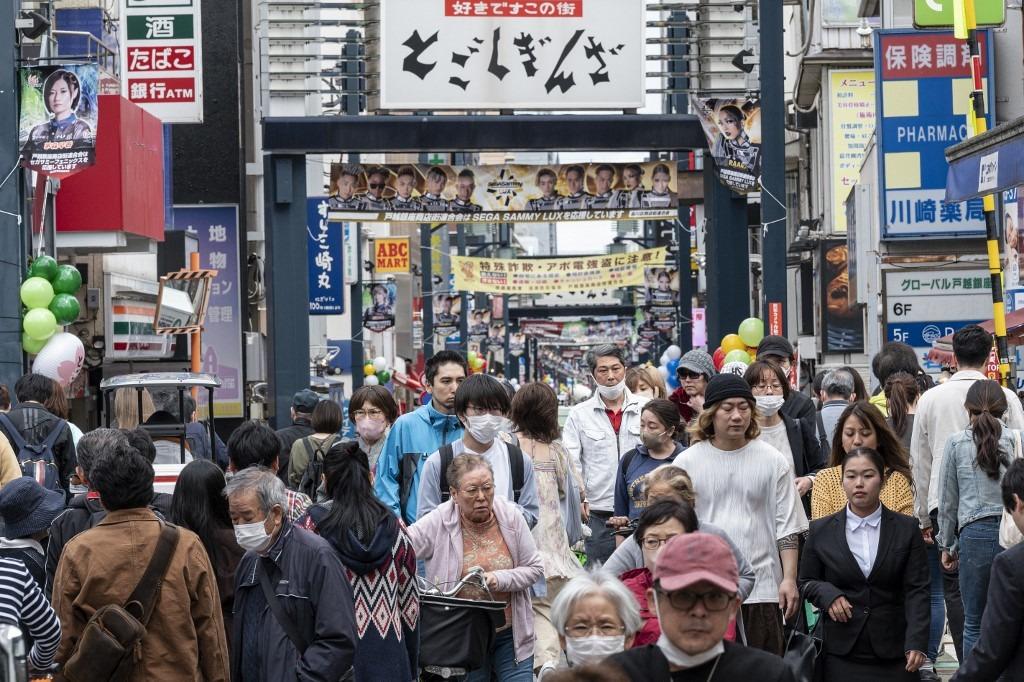 People walk past the train lines in Togoshi Ginza, along one of the longest shopping streets in the capital Tokyo, on May 8, 2023. (PHOTO / AFP)
People walk past the train lines in Togoshi Ginza, along one of the longest shopping streets in the capital Tokyo, on May 8, 2023. (PHOTO / AFP)
TOKYO - Japan's real wages in the fiscal year 2022 registered the steepest decline since 2014 as price increases outpaced the growth in nominal wages, official data showed Tuesday.
In the fiscal year from April 2022 to March 2023, inflation-adjusted real wages fell by 1.8 percent from the previous year, according to the Ministry of Health, Labor and Welfare.
Local analysts pointed out that as wage hikes did not keep up with inflation, the average Japanese worker is left with lower purchasing power, which could dampen consumer spending in Japan
Nominal monthly wages rose by 1.9 percent in the last fiscal year to an average of 326,308 yen, the fastest growth in over 30 years. However, inflation outpaced such gains by experiencing a climb of 3.8 percent due to surging prices in food, electricity, and gas
This marked the sharpest decline since a 2.9-percent drop in the fiscal year 2014 when an increase in consumption tax led to higher prices.
ALSO READ: Japan: Economy in recovery, caution over global slowdown
Nominal monthly wages rose by 1.9 percent in the last fiscal year to an average of 326,308 yen, the fastest growth in over 30 years. However, inflation outpaced such gains by experiencing a climb of 3.8 percent due to surging prices in food, electricity, and gas.
During the period, regular salary, including base pay, rose 1.1 percent, while overtime pay and bonuses increased at a higher rate of 4.1 percent and 4.5 percent, respectively, the data showed.
Total wages for full-time employees went up 2.3 percent to 430,392 yen, while that for part-time workers rose 2.8 percent to 102,791 yen.
READ MORE: Japan's economy runs below capacity, low rates may stay
Local analysts pointed out that as wage hikes did not keep up with inflation, the average Japanese worker is left with lower purchasing power, which could dampen consumer spending in Japan.


